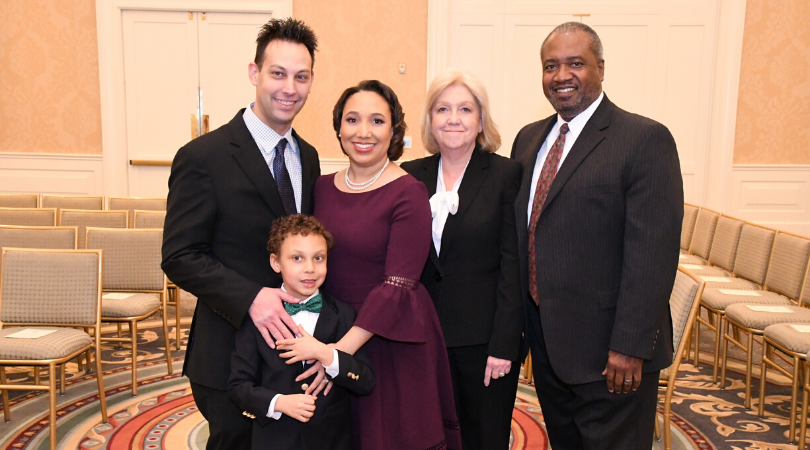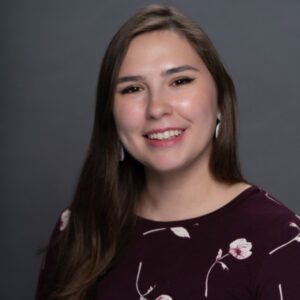
When Erin Nowell was five years old living in rural North Carolina, her father was shot and killed. This tragedy was young Nowell’s first exposure to the law and would become the basis of her future legal and political career. Like any child being raised by a single mother- especially a biracial child being raised by a white mother- Nowell’s childhood was characterized by both discomfort and triumphs. One of these highs came when Nowell was in kindergarten. Her principal brought her mother into his office, let her know that Nowell was an exceptionally bright child, and that she should be enrolling and registering her as African American. This, he said, would grant her access to significantly more financial aid and other educational opportunities in her formative years. Nowell now describes this moment as life-changing. With Nowell’s mother never having attended college, and her husband having been killed just months prior to this exchange, her daughter’s racial identification being important for higher education 13 years down the road was likely the absolute last thing on her mind. The principal was unaware of all of those factors, and still had the foresight to identify a gifted student and guide her and her mother toward a brighter future. On the other hand, Nowell distinctly remembers a vastly different exchange with an educator when she was a young high schooler. In this conversation, Nowell, having only proven her intelligence further by now, recalls a guidance counselor discouraging her from applying to top tier schools like Duke and Wake Forest. She instead steered her toward local, lower-ranked schools.
Nowell ended up receiving a full scholarship to Wake Forest University and then another full scholarship to the University of Texas School of Law. Nowell’s experience in law school could also be described by the same binary. She attended UT Law just five years after the groundbreaking case Hopwood v. Texas, which was the first successful legal challenge to a university’s affirmative action policy in student admissions. It was the first time since the decision that the number African American law students reached double digits. There were 18 out of about 450. Regardless, Nowell knew her place in the law school had been earned outright and was validated in that knowledge when she graduated with a position at a large plaintiff law firm in Dallas and a promising legal career ahead of her.
After spending several years in both defense and plaintiff work, Nowell began to wonder where she would go next. It was then that the prospect of running for public office entered her mind. She had given birth to a son and was not expecting to make partner at her firm given it was a small, close-knit firm and partnerships were limited. She began getting involved with the Dallas Bar Association and volunteering with different legal organizations in town. She had already done a lot of networking within the Dallas legal community among other women, but had realized throughout her career how politics can affect the legal profession and wanted to get more involved with a potential future run in the back of her mind. As the idea of running for public office became a reality for her, something unexpected happened and she was offered a partnership position at her firm. Even after accepting the partnership, Nowell continued to remain involved with politics. Just a year later, it was suggested that she run for place 5 of the Texas Fifth District Court of Appeals. It was a call to action that she could not resist.
At the beginning, the race seemed unwinnable. She was a black woman running as a Democrat for a major judgeship, the jurisdiction of which reached many rural and staunchly Republican areas of North Texas. As election day came to a close, it was clear she had beat the odds. When asked if she faced any hardships during the campaign or in her tenure on the bench, her answer is similar to that of her childhood. There were both struggles and triumphs. Campaigning was hard. She wasn’t home a lot, and she had a young son who questioned her absences. Her volunteers and staffers sent texts on behalf of the campaign and received reprehensible responses. She was hesitant to travel alone through parts of the district she was running to represent. However, because she did all of those things and persevered through the discouragement just as high-school-Nowell had, she is able to be a diverse voice on her bench as the only African American judge. She is able to mentor other female lawyers and create more space for them in the legal profession. And her son is growing up seeing that women can be judges, lawyers, and public leaders. It’s these triumphs that make the discomfort worth it, Nowell says. It’s not uncommon for female legal professionals to have been disrespected in the courtroom, mistaken for the court reporter, or been the only diverse voice- female or nonwhite. Because of her historic career, her son isn’t growing up to be the man who disrespects a woman in the courtroom, her mentees aren’t entering a legal space that mistakes women lawyers for court reporter, and she is able to incorporate a black female perspective into the rulings of the Fifth District Court of Appeals.
Nowell’s accomplishments and continued resolve have certainly changed the legal profession for diverse voices. And it’s those diverse voices that Nowell will continue to fight for. She will continue to mentor and uplift other women, showing them that while their experiences may not be easy or painless, their perseverance is necessary and can empower them to accomplish anything. They can be black, they can be mothers, they can be from a rural town, they can be from single moms, they can be disrespected, they can be discouraged, and they can still be judges and lawyers and public leaders.




